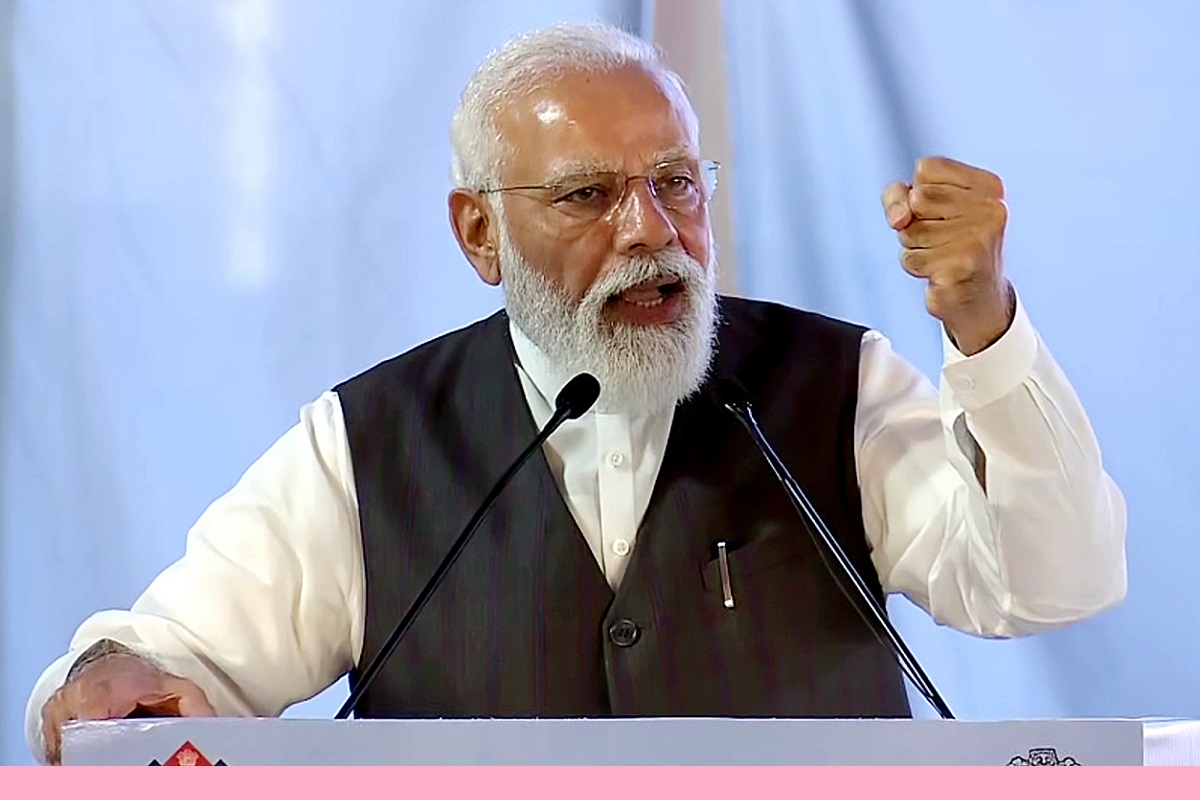Russia’s First Dy PM Denis Manturov to visit India
Manturov's visit underscores efforts to enhance bilateral trade and economic cooperation between Russia and India.
At the outset, the PM underlined the critical role of semiconductors in today’s world and said; “It is our collective aim to establish India as one of the key partners in global semiconductor supply chains. We want to work in this direction based on the principle of Hi-tech, high quality and high reliability.”

(ANI Photo)
Noting the strides the country has made in the field of financial inclusion, banking and digital payments, Prime Minister Narendra Modi today said India was building a digital infrastructure to connect over 1.3 billion Indians.
“We are using digital technology to transform lives in all sectors of governance from health and welfare to inclusion and empowerment,” he said inaugurating the Semicon India Conference 2022.
At the outset, the PM underlined the critical role of semiconductors in today’s world and said; “It is our collective aim to establish India as one of the key partners in global semiconductor supply chains. We want to work in this direction based on the principle of Hi-tech, high quality and high reliability.”
Advertisement
Modi underlined certain reasons for India being an attractive investment destination for semiconductor technologies.
He said that with steps like connecting 600000 villages with broadband investment in developing capabilities in 5G, IoT and clean energy technologies, India was paving the way to lead the next technology revolution.
India, he said, was headed for a robust economic growth with the world’s fastest-growing Startup Ecosystem. India’s own consumption of semiconductors was expected to cross $80 billion by 2026 and $110 billion by 2030.
The PM pointed out that India has undertaken wide-ranging reforms for improving the ease of doing business in India. In this connection, he drew attention to measures like the abolition of more than 25,000 compliances, a push towards auto-renewal of licenses, transparency and speed in regulatory framework via digitisation and one of the most favourable taxation structures in the world.
The PM said the country was making a huge investment in skilling and training young Indians to meet the needs of the 21st century. “We have an exceptional semiconductor design talent pool which makes up to 20% of the world’s semiconductor design engineers. Almost all of the top 25 semiconductor design companies have their design or R&D centres in our country”, he added.
Modi said that India has undertaken several measures toward transforming the manufacturing sector. “At a time when humanity was fighting a once in a century pandemic, India was not only improving the health of our people but also the health of our economy”, he added.
The PM talked about ”Production Linked Incentives” schemes that offer incentives of over $26 billion in 14 key sectors. Over the next five years, the electronics manufacturing sector was expected to see record growth, he informed.
Modi also told the audience about the recently announced Semi-con India Programme with a total outlay of over $10 billion.. This programme aims to provide financial support to companies investing in semiconductors, display manufacturing and design ecosystems.
The PM acknowledged the need for government support and assured the audience of the best efforts of the government to provide a conducive environment for business. “While the industry works hard, the government must work even harder”, he said.
Noting the formation of the new world order, the Prime Minister asked to seize the opportunity that was emerging. “We have worked hard over the last few years to create an environment that encourages growth. India has an appetite for tech and risk-taking. We have put the odds in your favour as far as possible through a supportive policy environment. We have shown that India means business”, he said.
Advertisement